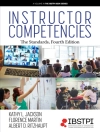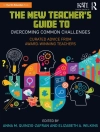This book brings together recent research on interpersonal relationships in education. Clearly, positive teacher-student relationships strongly contribute to student learning. Problematic relationships on the other hand can be detrimental to student outcomes and development. Productive learning environments are characterized by supportive and warm interactions throughout the class: teacher-student and student-student. Similarly, teacher learning thrives when principals facilitate accommodating and safe school cultures.The contributions to this book are based on presentations at the first International Conference on Interpersonal Relationships in Education: ICIRE 2010 held in Boulder, Colorado, the United States and include among others keynote addresses by Kathryn Wentzel, Walter Doyle and Theo Wubbels. The chapters help explain how constructive learning environment relationships can be developed and sustained. Contributions come from among others educational and social psychology, teacher and school effectiveness research, and communication and language studies, among other fields. They cover relationships of teachers with individual students and among peers, and relationships between teachers and teachers and principals.
Innehållsförteckning
Acknowledgements; 1. Introduction to: Interpersonal relationships in education; 2. Teacher-student relationships and adolescent competence at school; 3. Understanding discordant relationships between teachers and disruptive kindergarten children: An observational study of teachers’ pedagogical practices; 4. An observational study of teachers’ affilliation and control behaviours towards kindergarten children: Associations with teacher-child relationship quality; 5. Elementary teachers need to recognize bullying before it peaks at the middle school; 6. Exploring patterns of interpersonal relationships among teachers: A social network theory perspective; 7. School principal-staff relationship effects on school climate; 8. The impact of teacher and principal interpersonal behaviour on student learning outcomes: A large scale study in secondary schools of Cyprus; 9. The ecology of curriculum enactment: Frame and task narratives; 10. Relations among beginning teachers’ self-reported aggression, unconscious motives, personality, role stress, self efficacy and burnout; 11. Students’ perceptions of their teachers’ classroom management in elementary and secondary science lessons and the impact on student achievement; 12. Teacher-student interpersonal behaviour in the Turkish primary to higher education context; 13. Teacher-student interpersonal relationships during the first year of secondary education: A multilevel growth curve analysis; 14. Let’s make things better: Developments in research on interpersonal relationships in education; Notes on Contributors.












